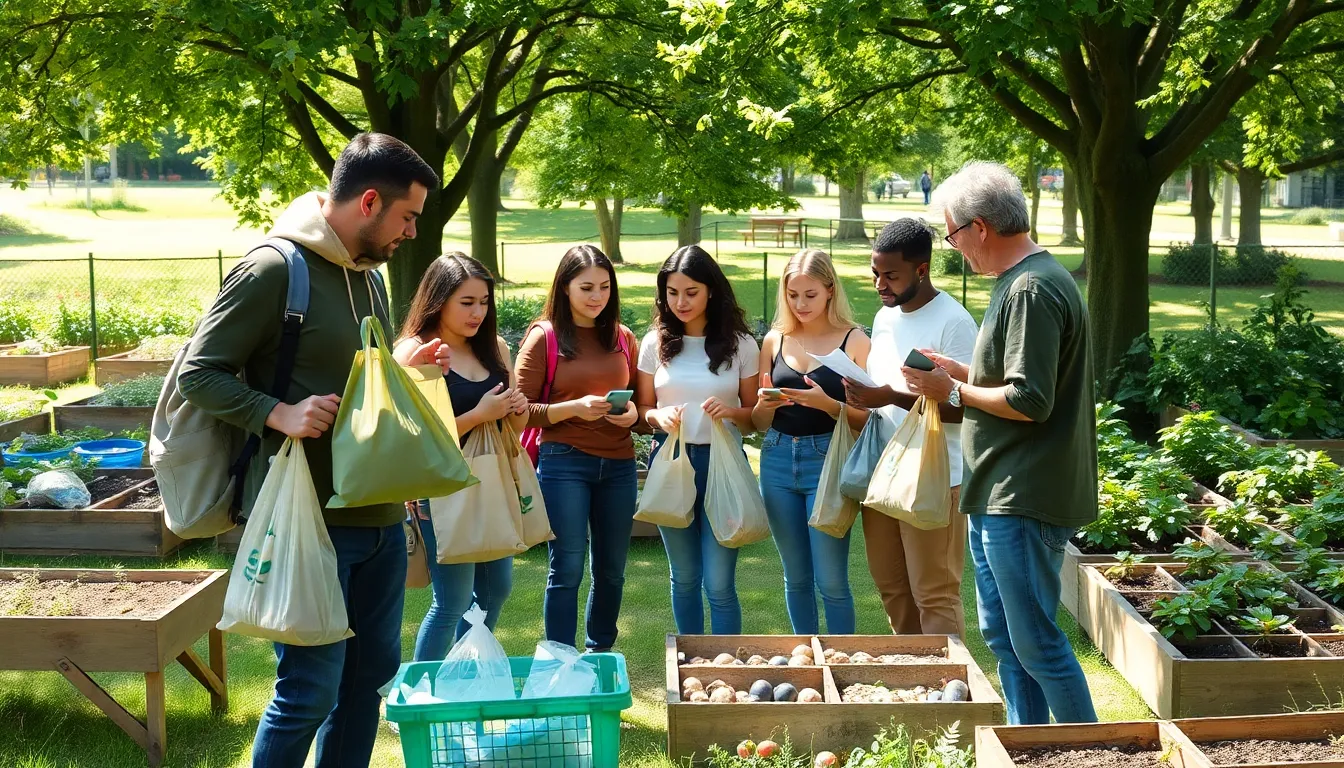Phone:
(701)814-6992
Physical address:
6296 Donnelly Plaza
Ratkeville, Bahamas.

In a world facing escalating environmental challenges, sustainable living isn’t just a trend—it’s a necessity. Individuals are increasingly recognizing their role in protecting the planet, leading to a surge in eco-friendly practices that promote healthier lifestyles. This guide offers practical insights into making sustainable choices that benefit both the environment and personal well-being.
From reducing waste to embracing renewable energy sources, sustainable living encompasses a wide range of actions. It’s about making conscious decisions that contribute to a more balanced ecosystem. Whether someone is just starting their green journey or looking to deepen their commitment, this guide will provide valuable tips and strategies for creating a sustainable lifestyle that’s both achievable and rewarding.
Sustainable living encompasses choices and practices that minimize environmental impact while promoting a healthy lifestyle. It emphasizes a balanced relationship with the planet, fostering both ecological welfare and individual well-being.
Sustainable living involves making conscious decisions to use resources efficiently, reducing waste, and supporting renewable energy sources. The concept focuses on reducing one’s carbon footprint through practices like recycling, conserving water, and choosing locally sourced products. Examples include adopting plant-based diets, utilizing public transportation, and lowering energy consumption.
Sustainability plays a crucial role in mitigating environmental degradation and promoting biodiversity. It addresses pressing issues like climate change, pollution, and resource depletion. Individuals practicing sustainability contribute to a healthier planet and enhance their quality of life. Increased awareness of these challenges drives the adoption of eco-friendly habits that benefit communities and future generations.

Sustainable living requires adherence to core principles that reduce environmental impact and enhance well-being. Following these principles creates a healthier planet and improves individual lifestyles.
Reducing consumption leads to less waste and resource depletion. Prioritizing reusable items, like shopping bags and water bottles, minimizes single-use plastics. Recycling ensures materials, such as paper, glass, and metals, are reprocessed and kept out of landfills. Engaging in these practices not only conserves resources but also lowers carbon emissions and promotes a circular economy.
Adopting minimalism encourages individuals to live with only essential items. This approach reduces clutter and consumption, leading to lower environmental impact. Prioritizing quality over quantity fosters sustainable purchasing habits. Embracing simplicity enhances mental clarity and facilitates more meaningful interactions with surroundings, contributing to a fulfilling lifestyle while lessening ecological footprints.
Sustainable living encompasses various practical strategies that individuals can adopt to minimize their environmental impact. The following subheadings outline specific actions in different areas of daily life.
Implementing eco-friendly home practices significantly contributes to sustainability. Use energy-efficient appliances that consume less electricity and reduce utility bills. Incorporate LED lighting, which consumes up to 75% less energy than traditional bulbs. Opt for water-saving fixtures, such as low-flow showerheads and toilets, to conserve water without sacrificing performance. Utilize natural cleaning products, like vinegar and baking soda, to maintain a clean environment without harmful chemicals. Lastly, enhance insulation and seal leaks to maintain optimal temperature and reduce heating and cooling energy usage.
Choosing sustainable transportation options can greatly reduce carbon footprints. Use public transportation whenever feasible, as it lowers per-person emissions compared to private vehicles. Consider biking or walking for short trips, promoting both health and lower emissions. Carpooling with others further lessens the environmental impact by sharing rides and reducing the number of vehicles on the road. If a vehicle is necessary, consider switching to an electric or hybrid model, which use significantly less fossil fuel. Committing to these choices encourages a culture of sustainability and community well-being.
Adopting green shopping habits fosters sustainability while supporting local economies. Purchase items made from sustainable materials, such as organic cotton, bamboo, or recycled goods. Avoid single-use plastics by bringing reusable bags, containers, and utensils when shopping. Choose to buy from local producers, which reduces transportation emissions and supports community businesses. Prioritize quality over quantity, selecting durable items that last longer and entail fewer replacements. Implementing these shopping practices leads to a more sustainable lifestyle and encourages others to follow suit.
Embracing a sustainable lifestyle offers significant advantages across various dimensions, impacting both the planet and individual well-being.
Environmental benefits arise from sustainable choices that significantly decrease resource consumption and waste generation. Reduced carbon emissions contribute to mitigating climate change and related impacts. Conservation of natural resources leads to less deforestation and habitat destruction, promoting biodiversity. Adopting renewable energy sources decreases reliance on fossil fuels, resulting in cleaner air and water. Sustainable practices, like composting and recycling, minimize landfill contributions and foster a circular economy. These collective efforts enhance ecosystem health and ensure the longevity of natural resources for future generations.
Health and well-being improve through sustainable living by fostering healthier environments and lifestyles. Access to clean air and water decreases the risk of chronic illnesses. Choosing organic and locally sourced foods reduces exposure to harmful pesticides and supports community economies. Reduced waste and sustainable consumption habits cultivate mindfulness, minimizing stress associated with overconsumption. Eco-friendly practices, such as walking or biking, encourage physical activity and improve mental health. Additionally, living sustainably often leads to stronger community connections, enhancing social well-being and support systems.
Sustainable living is more than a choice; it’s a commitment to a healthier planet and a better quality of life. By embracing eco-friendly practices and making conscious decisions, individuals can significantly reduce their environmental impact. Each small action contributes to a larger movement towards sustainability, fostering a sense of community and shared responsibility.
As awareness grows, the shift towards sustainability becomes increasingly vital. Adopting these practices not only benefits the environment but also enhances personal well-being. The journey toward a sustainable lifestyle is ongoing and rewarding, encouraging individuals to continually seek out new ways to live harmoniously with the planet. Every step taken today paves the way for a brighter future for generations to come.